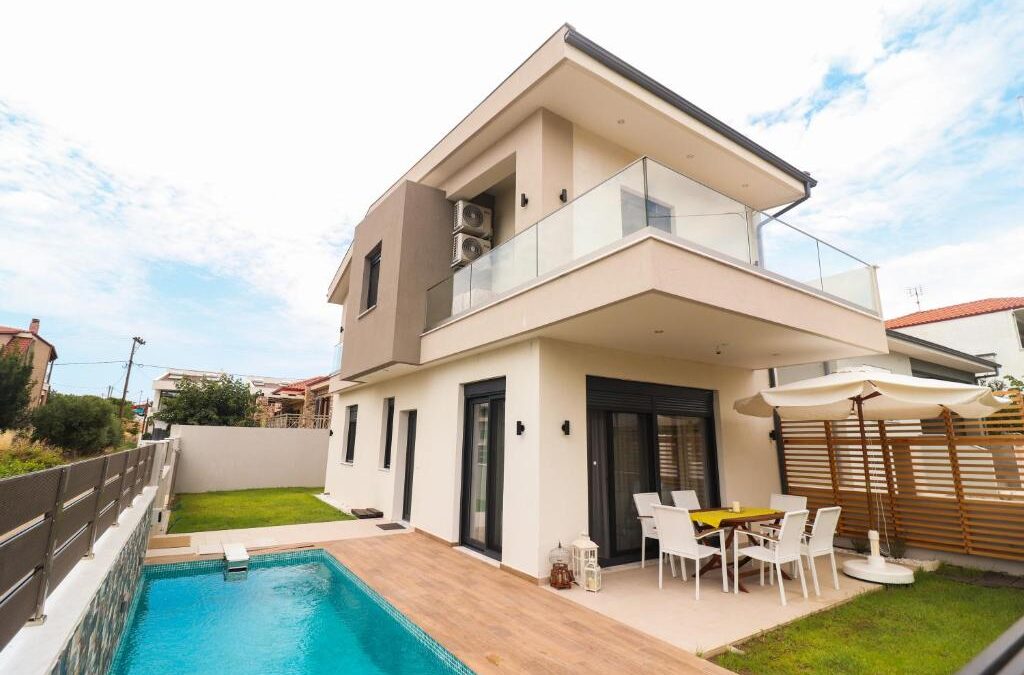Having a pool provides a wonderful escape during hot weather, but ensuring it’s always at a comfortable temperature poses a question: ‘How much does it cost to heat a pool?’ This article delves into various factors that influence the cost of heating a pool, offering insights on energy efficiency, types of heaters, and seasonal considerations. By the end of this read, you’ll have a clearer vision of the costs associated with maintaining an ideal swimming environment.

The Basics of Pool Heating
To understand pool heating costs, it’s important to grasp the basic elements involved. These costs can vary significantly depending on the type of heater used, the pool size, and the climate. Typically, natural gas, propane, and electricity are primary fuel sources, each with its own costs and efficiency levels.
Types of Pool Heaters
Gas Pool Heaters
Known for rapid heating, gas pool heaters are quite popular. While their initial installation cost can be reasonable, ongoing expenses, mainly gas supply, can be substantial. They are best suited for pools used sporadically since they can quickly heat the water when needed.
Electric Heat Pumps
Electric heat pumps are more energy-efficient compared to gas heaters. Though they have a higher upfront cost, they utilize minimal electricity to extract heat from the air, making them a cost-effective option over time, especially in warmer climates.
Solar Pool Heaters
One of the most environmentally-friendly and cost-effective methods is using solar pool heaters. While their installation can be pricey, they harness free solar energy, ultimately reducing your heating costs substantially in the long run.
Factors Influencing Pool Heating Costs
Pool Size and Shape
The pool’s size and shape directly affect the volume of water to be heated. Larger pools require more energy, hence increased costs.
Climate and Location
Your geographical location greatly influences heating costs. Colder regions require more energy input compared to warmer locales. Understanding how climate affects your pool will help you choose the most cost-efficient option.
Swimming Frequency
The frequency with which you heat your pool directly impacts energy expenses. Regular use necessitates more consistent heating, increasing costs.
Calculating the Cost to Heat a Pool
Energy Consumption Estimation
To estimate how much it costs to heat a pool annually, consider calculating your heater’s energy consumption in conjunction with your local energy rates. You can use online calculators or consult professionals for accurate estimations.
Comparing Heater Efficiency
Consider the efficiency of different heaters: gas heaters, electric heat pumps, and solar options each have unique efficiency ratings that can majorly affect your overall cost.
Cost-Saving Tips and Best Practices
Invest in a Pool Cover
Pool covers prevent heat loss, reducing the energy needed to maintain water temperature, which can effectively reduce heating costs.
Regular Maintenance
Regularly maintaining your heater ensures it operates at maximum efficiency. This includes routine checks and timely repairs to avoid increased energy use.
Choosing the Right Heater for Your Needs
Evaluate the specific needs of your pool, usage habits, and local climate before selecting a heater. This is a crucial step to ensure energy efficiency and cost-effectiveness.
Conclusion: Making Informed Pool Heating Choices
Understanding how much it costs to heat a pool requires a multifaceted approach, considering numerous factors like type of heater, geographical location, and energy consumption. By considering the tips outlined here, you can make informed decisions that ensure your pool’s temperature is consistently comfortable while managing costs efficiently.

FAQ: Common Queries on Pool Heating
What is the cheapest way to heat a pool?
Utilizing solar heaters is generally the most cost-effective after installation, as they leverage free solar energy, dramatically reducing ongoing costs.
How long does it take to heat a pool?
The time varies based on heater type and pool size. Gas heaters are quickest. Alternatively, heat pumps and solar heaters take longer but are more energy-efficient.
Are pool covers effective in saving heating costs?
Yes, pool covers are very effective. They significantly reduce heat loss, conserving energy needed for heating.
For more information on increasing your property’s value, explore this guide by California Pools. Consider exploring the impact of a pool on your property’s value on HGTV’s website.
You can learn more about innovative technologies in swimming pool maintenance by visiting DripX water leak detection, which uses cutting-edge technology for optimal operation.
This article contains affiliate links. We may earn a commission at no extra cost to you.

